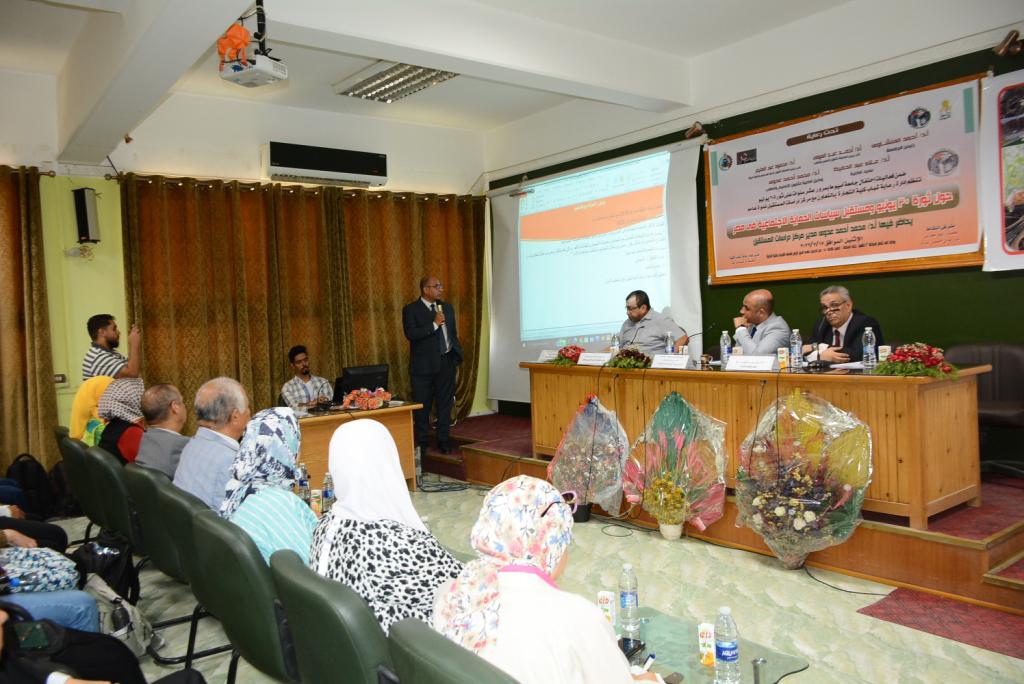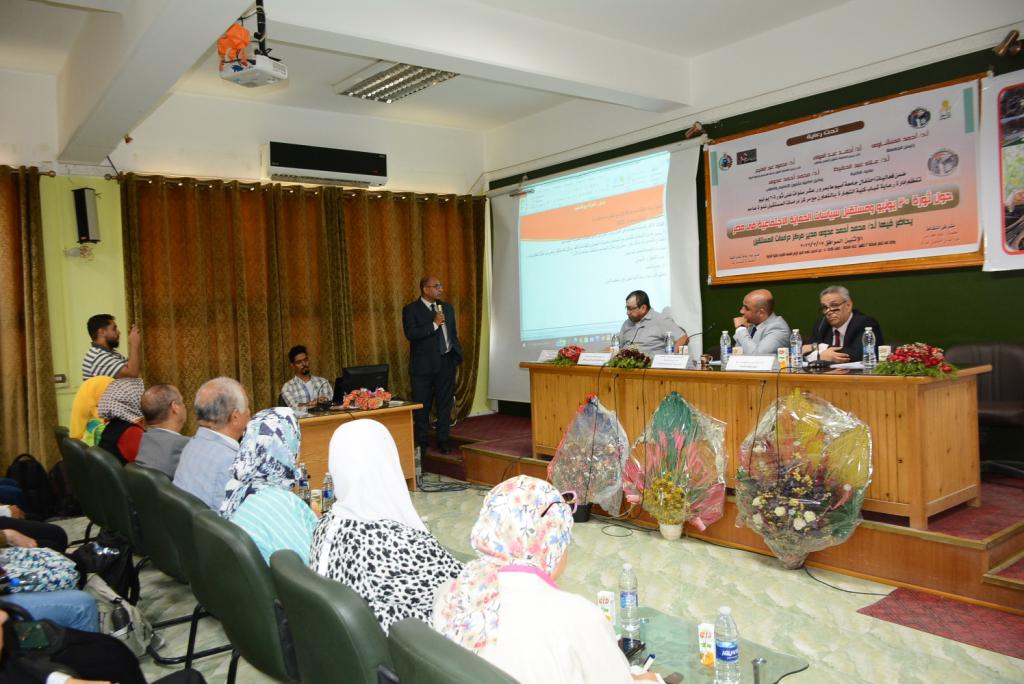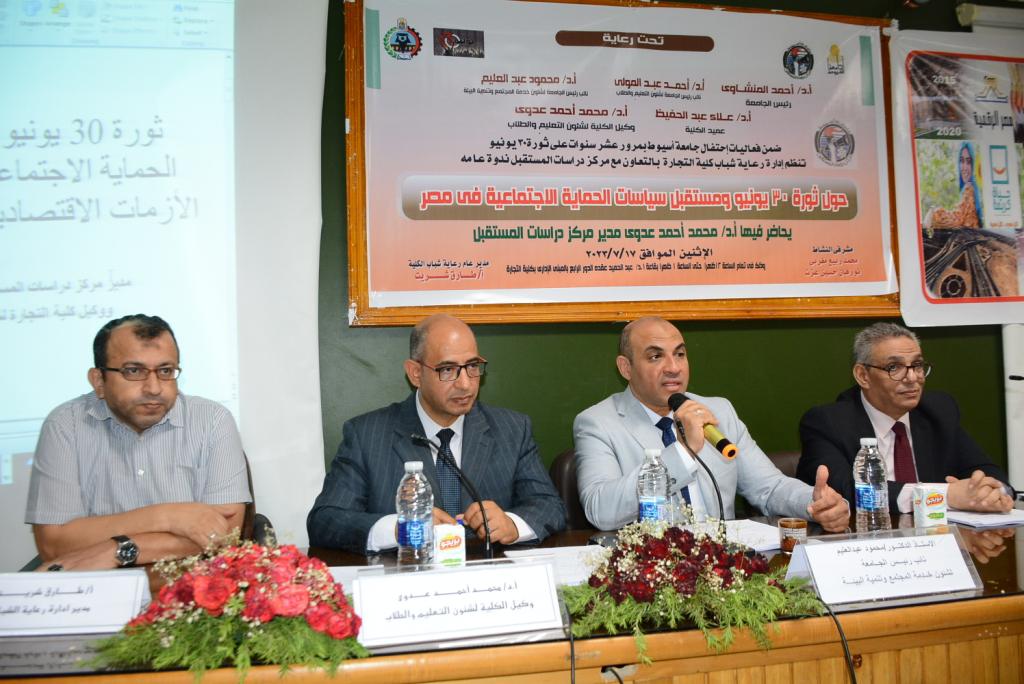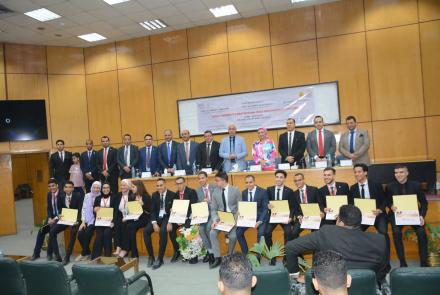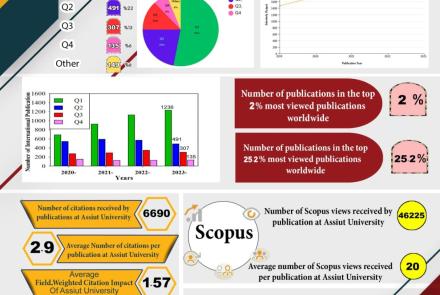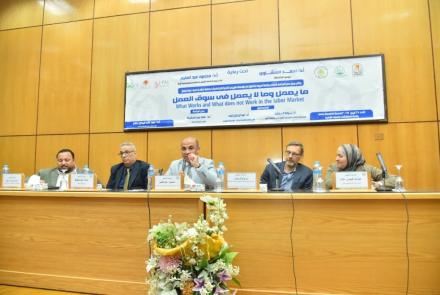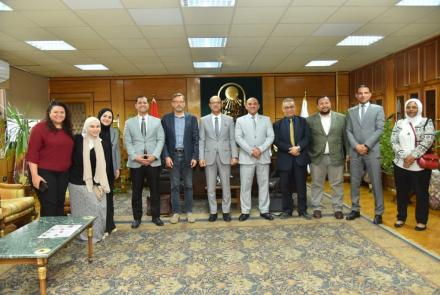As part of Assiut University's month-long commemoration of the tenth anniversary of the glorious June 30 Revolution, the Faculty of Commerce, in cooperation with the Future Studies Center, organized two awareness-raising seminars for students under the auspices of Prof. Ahmed Al-Minshawi, President of Assiut University.
The first seminar was delivered by Prof. Mohamed Ahmed Adawy, Vice Dean for Education and Student Affairs and Director of the university's Future Studies Center, on "The June 30 Revolution and Social Protection Policies in Light of the Global Economic Crises." During that seminar, Prof. Adawy explored the concept of social protection policies and their relationship to political stability, the role and functions of the state, and human security and its various dimensions, such as economic security, environmental security, food security, personal security, health security, societal security, and political security. He also examined global developments and the role of governments in social protection policies.
Prof. Mohamed Adawy also highlighted Egypt's unprecedented social protection policies in the wake of recent successive global crises. These include state-funded initiatives and programs, such as the "Decent Life" initiative (Hayah Kareema) and the two programs "Solidarity and Dignity" (Takaful & Karama).
"The Decent Life" initiative focuses on the comprehensive development of the neediest rural communities, eradicating poverty, and promoting decent and sustainable living.
Takaful, or Solidarity, is a family income support program (conditional cash transfer) for families with children (0–18 years) and is aimed at increasing food consumption, reducing poverty, encouraging families to keep children in school, and providing them with needed healthcare.
Karama, or Dignity, is a social inclusion program (non-conditional cash transfer) for individuals who cannot work, specifically the elderly (65+ years of age), persons with disabilities, and orphans, and is aimed at providing social protection and a decent life for these most vulnerable populations.
In addition, Prof. Adawy highlighted the state's initiatives to encourage and provide financial and technical assistance to micro, small, and medium-sized enterprises, as well as its endeavors to promote sustainable slum development and human security, such as eradicating haphazard marketplaces and unplanned areas.
The Leadership Preparation Team at the Faculty of Commerce presented the second seminar on "The June 30 Revolution and its Implications for Economic Development in Egypt." During that seminar, the team discussed the following topics: the most critical causes of public discontent that led to the June 30 Revolution; Egypt's post-revolution economic development policies; the different types and indicators of development; the factors and characteristics of economic growth; the Egyptian economy before and after the June 30 Revolution; and the impact of some projects undertaken by the state after the June 30 Revolution on the Egyptian economy, such as the New Suez Canal and the New Administrative Capital; Road and Transport Infrastructure Development Projects; and the Egyptian Black Sand Complex.
